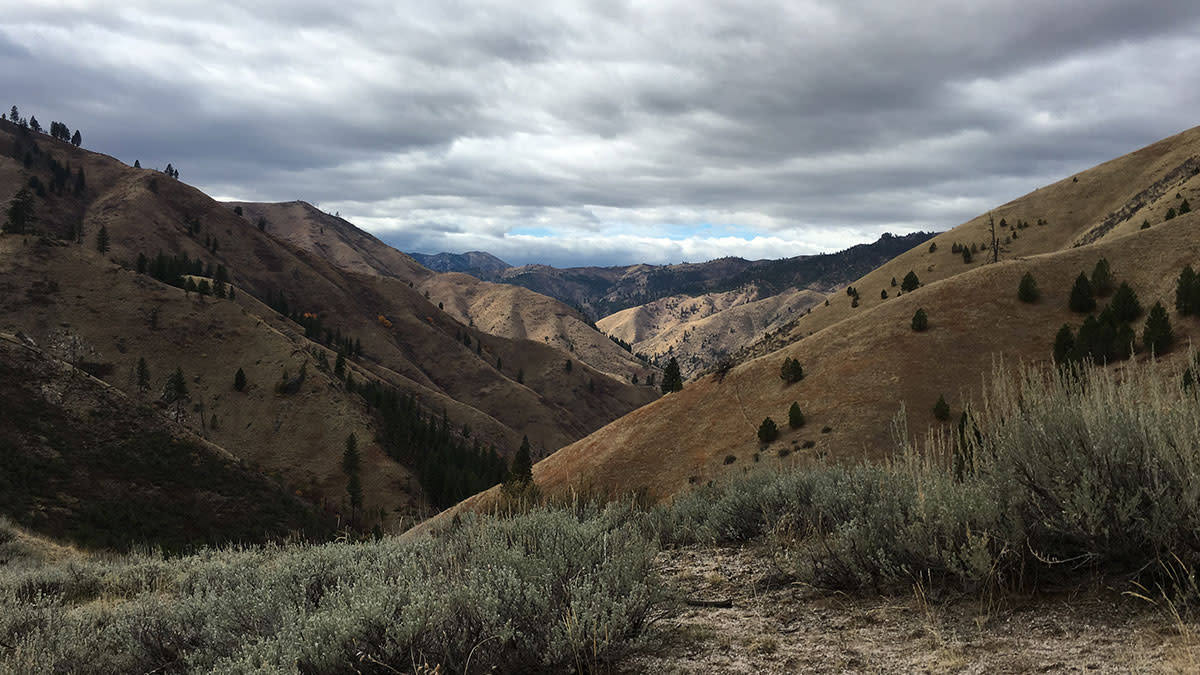‘Once-in-a-Lifetime Deal:’ LWCF and Public Lands Maintenance Funding Bill Introduced in Senate

Following President Trump’s public declaration of support last week for permanently funding the popular Land and Water Conservation Fund and addressing the public lands maintenance backlog, a bipartisan group of Senators submitted a bill to do just that. S. 3422, the Great American Outdoors Act, introduced March 9, would dedicate the full $900 million annually to LWCF, and provide nearly $2 billion annually to address massive maintenance backlogs on federal public lands and facilities.
Senator Martin Heinrich of New Mexico, one the original sponsors of the legislation, called it a “once-in-a-lifetime deal” in an interview with MeatEater today.
“The Land and Water Conservation Fund passed in the early ’60s, but in recent years the best we’ve done is to fund it at about half,” Sen. Heinrich said. “To have full and permanent funding, this has been the Holy Grail for a long time. And to pair that up with being able to really address the backlog and trail maintenance and visitor centers and all the other things that our outdoor, public lands economy relies on, this is a once-in-a-lifetime opportunity.”
The bill already has 54 cosponsors in the Senate from both parties, including Senate Majority Leader Mitch McConnell, who sets the vote schedule. Many members of the upper chamber of Congress are hoping to put the bill to a vote within a week or two. Six more cosponsors would form a rare supermajority, possibly precluding a floor debate and the opportunity to introduce potentially damaging amendments.
This legislation arrives in the wake of President Trump’s tweet supporting the idea and two Republican Senator co-sponsors of the bill up for re-election. Some see political theater at play here, but many others don’t care.
“Well, sometimes it’s helpful to have an election or two to focus the mind, and I think that may have had some impact on this debate,” Sen. Heinrich said. “But whether people’s motivations are political or not, this is the right thing to do. I’ve been fighting these LWCF fights for over 20 years. This is an enormous opportunity and the one way you can get rid of all that issue fatigue is to do the right thing once and for all.”
The Land and Water Conservation Fund was established in 1964 to reinvest royalties from offshore oil and gas drilling into public parks, access, and recreation. Those funds have gone into more than 40,000 such projects nationwide. The LWCF was allowed to sunset in 2015 before being permanently reauthorized last February. The fund accrues up to $900 million annually, but that full amount has only been appropriated twice—typically more than half gets siphoned off for other purposes. This new bill will ensure that all of the money goes into conserving land and water resources every year.
The National Park Service manages many of America’s marquee public lands, from Yosemite to Yellowstone to Great Smoky Mountain. In recent years that agency has accumulated some $12 billion-worth of deferred maintenance projects, from pot-holed roads to decrepit visitor centers to public restrooms in disrepair. This act would provide $1.3 billion annually until 2025 to address these problems. It would also provide $285 million annually to the U.S. Forest Service for the same kinds of issues, as well as around $95 million each to the Bureau of Land Management, the U.S. Fish & Wildlife Service, and the Bureau of Indian Education.
Land Tawney, president and CEO of Backcountry Hunters & Anglers, was among the conservation leaders working hard to get maintenance funding for the Forest Service, Fish & Wildlife Service, and BLM included in this legislative vehicle. He said the Great American Outdoors Act speaks to many of the biggest priorities of the conservation community.
“Increased deferred maintenance funding for these important public land management agencies is widely supported by diverse stakeholders,” Tawney said. “Together with dedicated LWCF funding, this support for our land managers will offer tangible benefits to our public lands, waters, and wildlife—and the outdoor reliant economies, communities, and individuals who depend on them. Sportsmen and women thank our Senate leaders for recognizing the crucial importance of these strategic investments.”
Though introduction in the Senate is a big step forward, nothing is ever guaranteed in Congress.
“I think the scale of this in history is really important. So, let’s not screw it up,” Sen. Heinrich said. “Let’s all come together and work together to get this thing across the finish line. It’s not done until the ink dries at the White House. People could change their minds. This president has been known to change his mind, so we have to keep the pressure on right to the very end.”
Ryan Callaghan, MeatEater’s director of conservation, encouraged all hunters, anglers, and public land users to voice their support for this bill.
“Call your duly-elected officials,” Callaghan said. “If they’re cosponsoring this bill, thank them. If they’re not, ask why not. This is one of the most important pieces of legislation for hunters and anglers in this decade, and we might never get another chance to achieve these goals. The time is now.”



